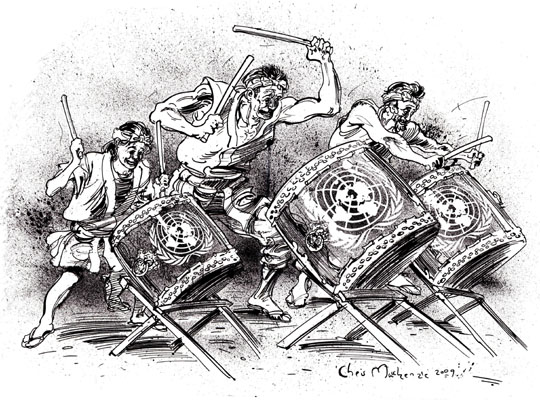For those who don't know — and you would be forgiven considering the lack of coverage the issue receives — a buraku is the term used to describe an area where some, but not all, of the residents have ancestral ties to the people placed at the bottom of feudal society in the Edo Period. These people were assigned tasks considered "tainted" according to Buddhist and Shinto beliefs, such as butchery and leather work, where the killing of and use of animal corpses was involved. Today, official statistics put the number of burakumin at around 1.2 million, with unofficial estimates as high as 3 million.
Despite the numbers, the issue is something of a taboo in Japan: Mention the word "burakumin" in conversation and the response you often get is a polite silence. This approach seems to extend to the mainstream media, with television and newspapers barely covering the issues regarding this minority group.
On the Internet, where people are less likely to be held accountable for what they say, things are different. On one discussion forum, a human resources worker explains that his company will not employ someone "if there is doubt about whether he/she comes from a buraku." Another contributor says that while the habit of not employing people from buraku areas may have ceased for big companies, "for smaller, older companies, it is normal."


















With your current subscription plan you can comment on stories. However, before writing your first comment, please create a display name in the Profile section of your subscriber account page.